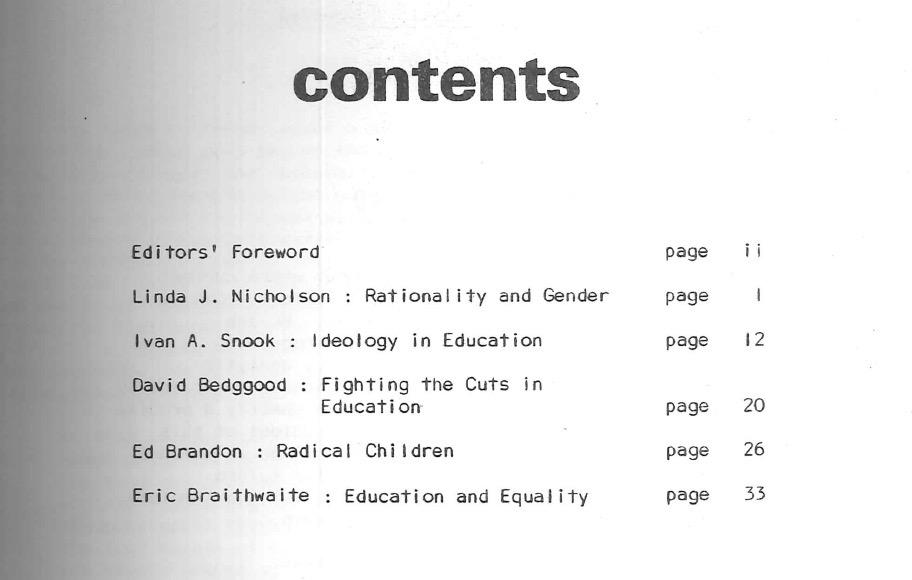The original Access, born in 1982 with table of contents as above, was a downhome artifact that resembled the punk and fan zine culture of the period much more than any other academic journal I had ever seen. Copy was typed on an electric typewriter onto A4 copy paper. Two A4 pages were sat side by side on the photocopier and printed as A3, which was then reduced to single A4 sheets printed on both sides. The print was small and grainy, and collating was a nightmare. Sheets were cut manually by guillotine, assembled and then stapled between sheets of yellow card. Strips of strong blue tape were folded over the spine. The annual subscription was $5, for two issues. It did not look like the kind of artifact one would have backed to run over four decades; and wouldn’t have were it not for successions of people who were subsequently prepared to pick up the baton and run with the spirit of “can do” and collegial support that defined Access from the beginning.
At annual PESA conferences Jim Marshall and I talked with colleagues who shared our interest in a journal that explored educational themes from a ‘progressive’ critical standpoint across disciplinary perspectives. Australian colleagues including Kevin Harris, Jim Walker, and Bob Mackie had talked about launching a similar kind of journal, but when they heard our plans they said they would get behind our effort — and urged us to put together a peer review board. Initially, there was not even a formal editorial policy. The first issue expressed our sense of limitations with specialist approaches like the prevalent analytic philosophy of education of the time, and their specialised journals. But we had no editorial policy, just a kind of ostensive definition of the kind of publication we sought, as represented by the contents of the inaugural issue.
Mostly, we wanted a journal that would evolve from the ground up and build a culture and an ethos that reflected the values of the kinds of people who would take their chances on publishing with a journal that looked like a zine, and that would spread and grow by word of mouth through the analogue networks of the day. We wanted a journal that students could afford and that they would find ways of contributing to. We sought — and received — economic and logistical support from our Departmental colleagues. In the spirit of Miles Horton and Paulo Freire’s words, it was to be a journal that made its road by walking, built on a ‘jump in and see if we swim’ approach. Carol Jay, our secretary, worked out the logistics of collation. Jim’s office became a gritty production space. Things were made up on the fly. Being an academic involved additional things like hustling publishers for books to review and soliciting articles from people whose career trajectories would likely not benefit a whole lot from publishing with a fledgling journal that looked like a zine.
The wonder was that colleagues, known and unknown, responded in sufficient numbers to keep Access afloat long enough for others to keep it going, and move it in new directions. More than anything else, after all this time, a quick flick through the early volumes is a powerful reminder to me of so many colleagues on whom one could count–people who were there for an idea and who would contribute generously to keep it alive. Amazingly, some of those people are still there.





